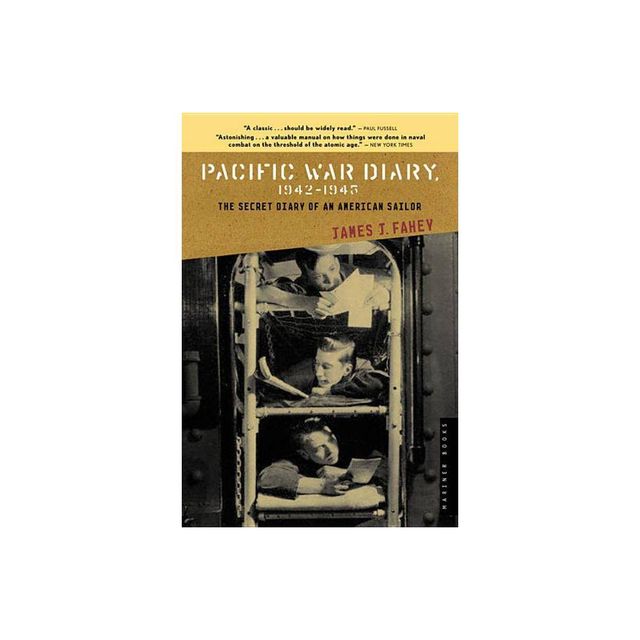Home
Witness to Neptune's Inferno: The Pacific War Diary of Lieutenant Commander Lloyd M. Mustin, USS Atlanta (CL 51)
Loading Inventory...
Barnes and Noble
Witness to Neptune's Inferno: The Pacific War Diary of Lieutenant Commander Lloyd M. Mustin, USS Atlanta (CL 51)
Current price: $34.95


Barnes and Noble
Witness to Neptune's Inferno: The Pacific War Diary of Lieutenant Commander Lloyd M. Mustin, USS Atlanta (CL 51)
Current price: $34.95
Loading Inventory...
Size: Hardcover
*Product Information may vary - to confirm product availability, pricing, and additional information please contact Barnes and Noble
"...richly describes so many timeless, classical, and archetypal aspects of war that anyone from the Napoleonic soldier to the Iraq War veteran could probably identify and relate to them." — Military Review
1942 would prove crucial for the United States in the Pacific following the Japanese attack on Pearl Harbor and a series of setbacks in the Southwest. As the first ship commissioned following America’s entry into World War II, the light cruiser USS Atlanta would be thrust into the Pacific fight, joining the fleet in time for the pivotal battle of Midway and on to the Guadalcanal campaign in the Southwest Pacific. Embarked was an exceptionally astute observer, Lieutenant Commander Lloyd M. Mustin, who faithfully recorded his thoughts on the conflict in a standard canvas-covered logbook.Diaries were not supposed to be kept by those serving in the U.S. Navy during World War II, and for good reason. If recovered by the Japanese, they would likely have revealed that the Japanese code had been broken prior to the battle of Midway. Thus, Mustin’s diary is a rare day-to-day accounting of the Pacific from a very opinionated mid-grade officer. Beginning with the commissioning of Atlanta at the Brooklyn Navy Yard on Christmas Eve 1941, Mustin covers the ship’s workups and her deployment to the Pacific in time for the battle of Midway.It’s then on to the Southwest Pacific, where the ship first engages enemy aircraft at the battle of the Eastern Solomons in late August 1942. Mustin’s final entry covers the battle of Santa Cruz in late October 1942. The story is completed by an account of the battle of Guadalcanal and beyond, drawing upon Mustin’s oral history. This is a valuable document, fully interpreted to provide a better understanding of the Pacific War during that critical year.
1942 would prove crucial for the United States in the Pacific following the Japanese attack on Pearl Harbor and a series of setbacks in the Southwest. As the first ship commissioned following America’s entry into World War II, the light cruiser USS Atlanta would be thrust into the Pacific fight, joining the fleet in time for the pivotal battle of Midway and on to the Guadalcanal campaign in the Southwest Pacific. Embarked was an exceptionally astute observer, Lieutenant Commander Lloyd M. Mustin, who faithfully recorded his thoughts on the conflict in a standard canvas-covered logbook.Diaries were not supposed to be kept by those serving in the U.S. Navy during World War II, and for good reason. If recovered by the Japanese, they would likely have revealed that the Japanese code had been broken prior to the battle of Midway. Thus, Mustin’s diary is a rare day-to-day accounting of the Pacific from a very opinionated mid-grade officer. Beginning with the commissioning of Atlanta at the Brooklyn Navy Yard on Christmas Eve 1941, Mustin covers the ship’s workups and her deployment to the Pacific in time for the battle of Midway.It’s then on to the Southwest Pacific, where the ship first engages enemy aircraft at the battle of the Eastern Solomons in late August 1942. Mustin’s final entry covers the battle of Santa Cruz in late October 1942. The story is completed by an account of the battle of Guadalcanal and beyond, drawing upon Mustin’s oral history. This is a valuable document, fully interpreted to provide a better understanding of the Pacific War during that critical year.







